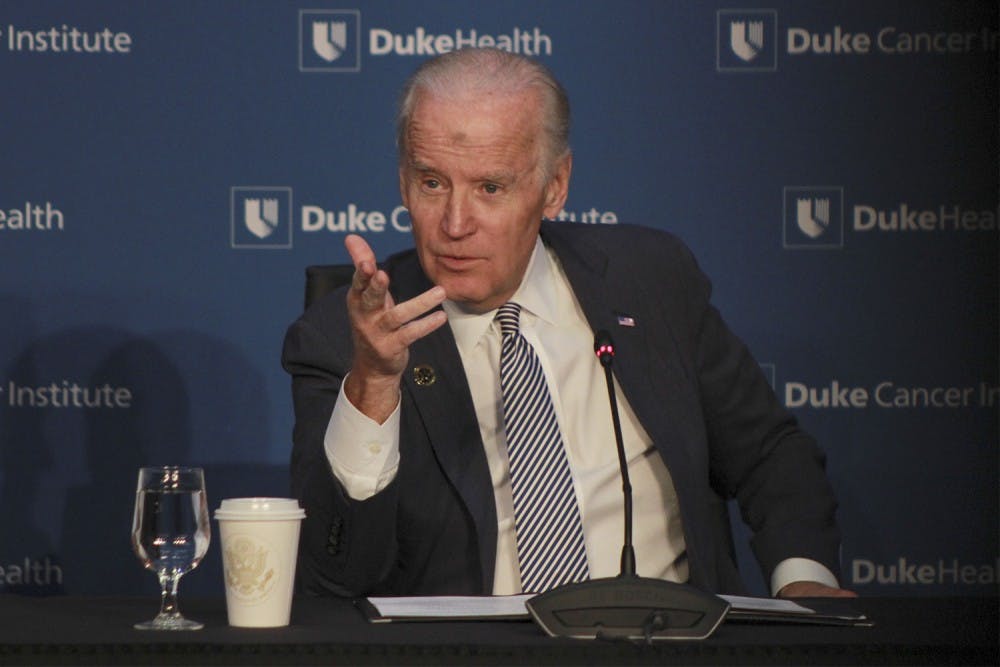Biden toured cancer research labs on Duke’s campus and held a roundtable discussion to promote the White House’s new cancer “Moonshot” initiative, which President Barack Obama announced in his 2016 State of the Union address.
“Almost everyone in the world has a family member who has had a brush with, or a loss, as a consequence of cancer,” he said.
Biden’s son, Beau, died of brain cancer in 2015. The vice president has since assembled a task force with a goal to further research for a cure, which includes a $1 billion initiative from the White House.
“I believe that we need an absolute national commitment to end cancer as we know it,” Biden said.
There was discussion at the roundtable about how to best utilize new advances in technology, to share research data, to push clinical trials and to encourage patient involvement.
“Much more has to be done, but I believe we can make much faster progress — as an outsider looking in with a different perspective — if we see greater collaboration, greater sharing of information,” Biden said.
Stephanie Wheeler, an assistant professor at UNC’s Gillings School of Global Public Health and a speaker at the roundtable, said early diagnosis with existing strategies is key to the vice president’s goals.
“(These strategies) are being underutilized by the poorest people, the minority populations, the rural populations of the country,” Wheeler said.



